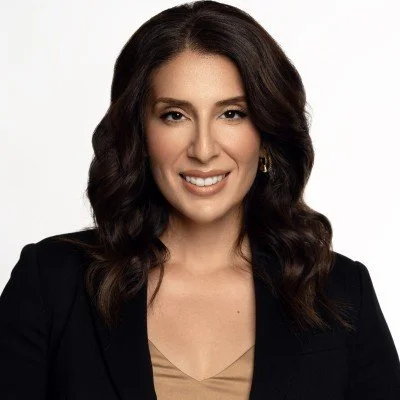Finding Our Hidden Potential: A Two-Generational Approach to Building the Future Education Workforce
BY STEPHANIE PARRA, CEO - ALL IN EDUCATION
At 3:15 p.m., the school pick-up line is buzzing with conversation. Parents and caregivers are swapping stories, kids are bursting through the gates, backpacks swinging. It occurs to me, “What if the next great educator isn’t sitting in a college lecture hall, but right here holding their child’s hand, carrying the wisdom of lived experience, and ready to lead?” I believe that the talent our schools need is already here—rooted in our communities. Our job is simple: see it, nurture it, and watch it thrive.
Many parents face steep barriers to entering the workforce—including lack of access to transportation, childcare, or financial aid. At ALL In Education, we focus on removing those barriers by equipping parents and caregivers with the skills, confidence, and opportunities to lead. Through our Two-Generational (2Gen) approach, families drive changes in schools and communities—creating lasting impact for both their children and future generations.
That belief came to fruition this summer during the pilot of ALL In Education’s Parent Educator Summer Institute—a workforce development strategy within our Sustainable Leadership Initiative for alumni of the Parent Educator Academy (PEA), co-created with our partners at the Arizona K-12 Center at Northern Arizona University and the Roosevelt School District. At a time when Arizona—like the rest of the country—still faces hundreds of vacant paraprofessional and special education roles, the Sustainable Leadership Initiative shows that we don’t need to look further, we need to look closer.
This two-week intensive training prepared eight parents and caregivers from underrepresented communities with knowledge and skills to step into the education profession as classroom aides and paraprofessionals. In fact, 81% of surveyed PEA alumni said they were interested in a career in education, and 85% expressed interest in education advocacy and policy. Grounded in the 2Gen approach, we designed the Summer Institute with the goal of addressing three systemic challenges for these parents and caregivers: educator recruitment and retention, early literacy proficiency, and economic mobility of families.
In two weeks, parents and caregivers didn’t just learn, they transformed. The curriculum was intentionally rigorous. We focused on literacy foundations, interventions, classroom diagnostics, and instructional best practices. More than that, we created space for identity, reflection, and purpose. Participants learned more than just how to teach, they reconnected with why education matters to them, and how their lived experience is an asset to the profession.
The Summer Institute is just the beginning of a tiered multi-year journey. Each Summer Institute cohort will return every summer to continue their professional development and gain new tools, strategies, and perspectives. This sustained growth equips participants to expand their influence and responsibilities within the school system. Along the way, participants earn stackable credentials and receive tailored support, which includes mentorship from seasoned educators, as they progress through the education pipeline—from classroom aides to paraprofessional roles and beyond.
During the academic year, our initiative offers scholarships of up to $2,500, along with financial aid navigational support. Participants are assigned an experienced Instructional Mentor who provides one-on-one coaching and facilitates monthly Communities of Practice. These structures are designed to support entry into the profession, and ensure the retention, growth, and long-term success of program participants.
This year’s cohort rose to the challenge, developed literacy instructional skills, and found their educator voice. All eight participants in the pilot cohort interviewed with the Roosevelt School District. All eight received job offers. But at the end of the day, this work is about more than filling vacancies—it’s about equity.
Our commitment to racial equity and economic mobility aligns with EdLoC’s conviction that transforming outcomes for families of color requires investing in both education and economic opportunity. Recruiting and retaining educators of color isn’t just good policy—it’s a moral imperative. We need a workforce that reflects the students it serves and understands the systemic challenges our communities navigate.
That’s why we advocate for broader investment in efforts like the Arizona Teachers Academy and federal policies such as the Pay Teachers Act, which would ensure educators earn a livable wage. Competitive compensation isn’t just key to retaining great teachers—it’s essential for opening the profession to those from historically underrepresented communities.
So, what’s next? We’re exploring partnerships with new districts, growing our Parent Educator Summer Institute cohort, and building long-term mentorship structures to sustain our alumni. I ask fellow EdLoC members to join us in reimagining the educator pipeline. Let’s stop overlooking the brilliance that already exists in our neighborhoods. We have a tremendous opportunity to find our hidden potential and invest in it, so two generations can rise together to build the future our students deserve.
About Stephanie Parra
Stephanie Parra is an EdLoC member and the Chief Executive Officer of ALL In Education, which aims to ensure that the communities most impacted by educational inequities are the ones making decisions for ALL students.
Stephanie is a first-generation American originally from Yuma, Arizona. As the proud daughter of immigrants from Sonora, Mexico and one of the first in her family to attend college, Parra saw first-hand the importance of education to build generational wealth. She holds two Bachelor’s degrees in Justice Studies and Psychology, and a Master’s in Higher Education. For 10 years, Parra served as a Governing Board Member of the Phoenix Union High School District, representing Ward 3.
Stephanie is currently pursuing her Doctoral Degree from Arizona State University in Education Leadership and Innovation. Stephanie was named a 2023 Aspen Institute Ascend Fellow, the 2024 Woman of the Year by the Arizona Hispanic Chamber of Commerce, and a 2025 Pahara Fellow.


